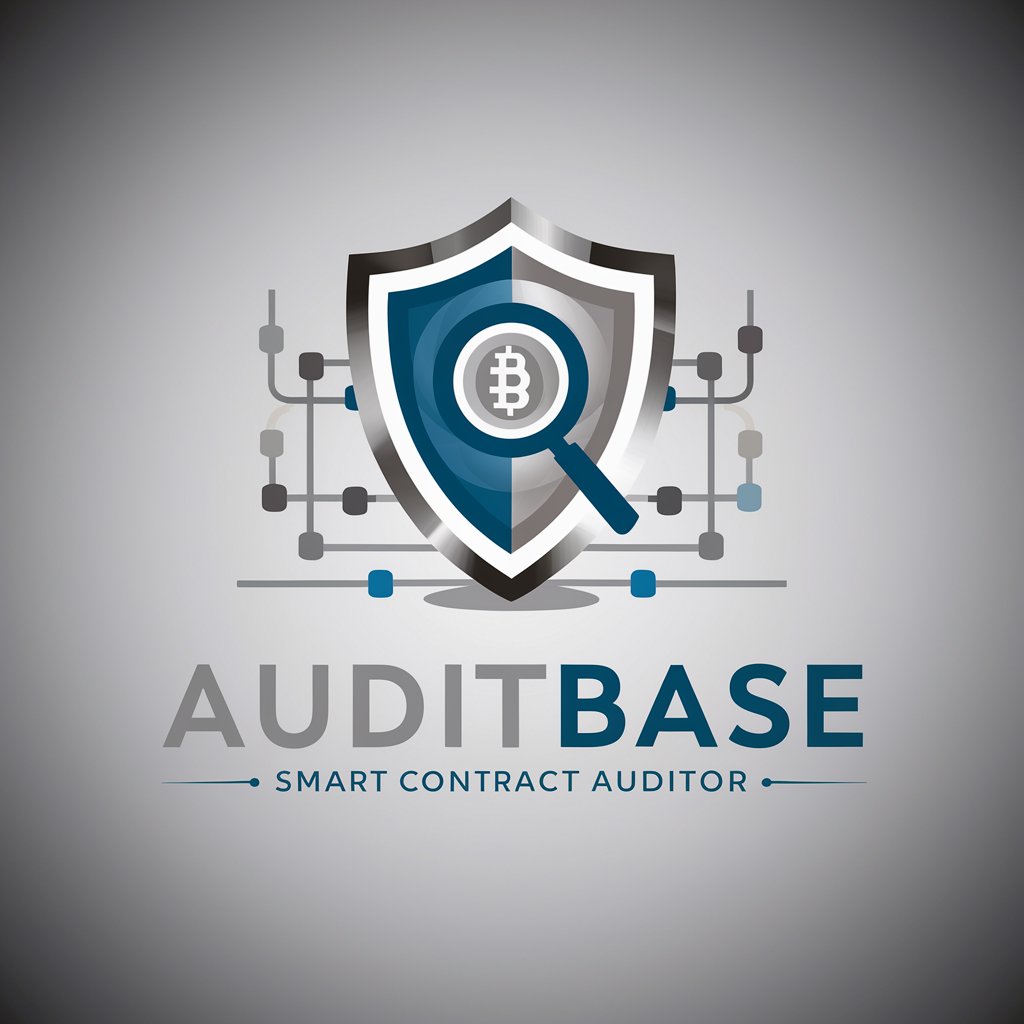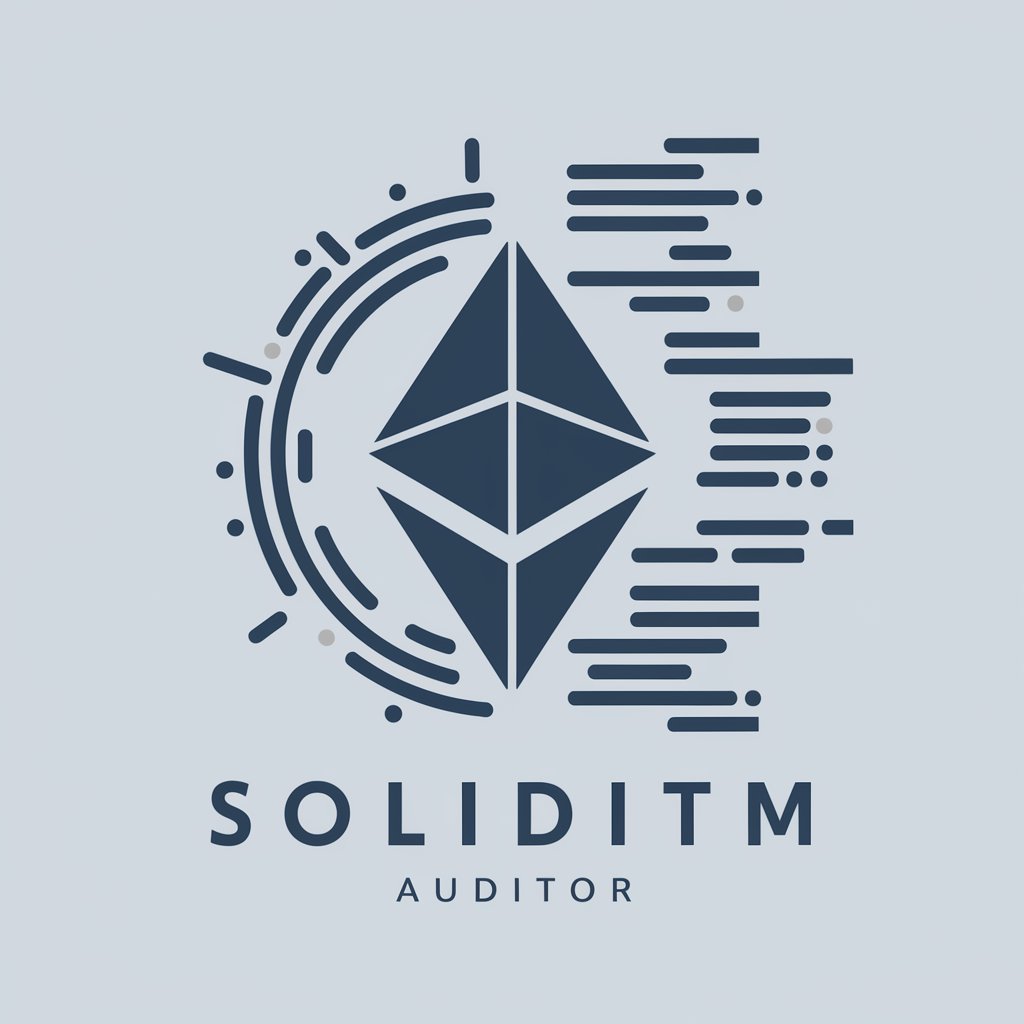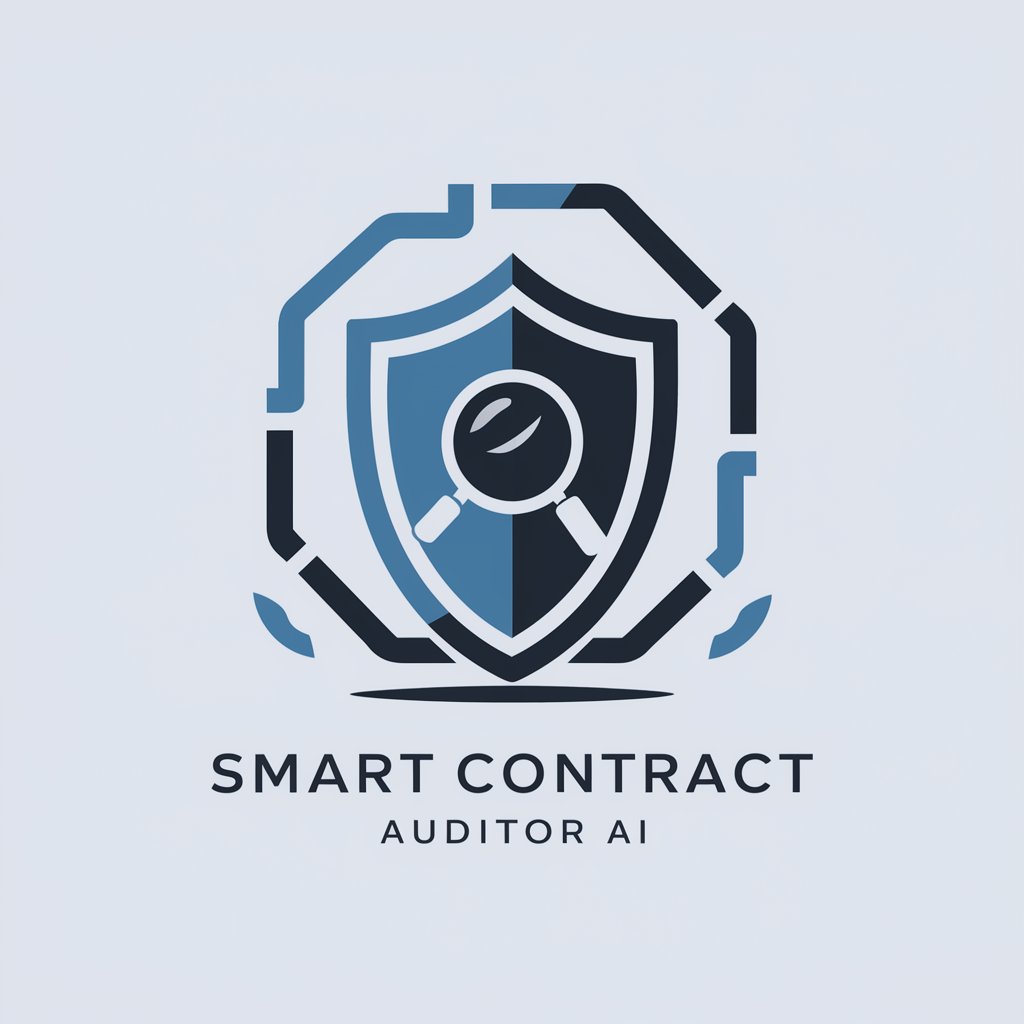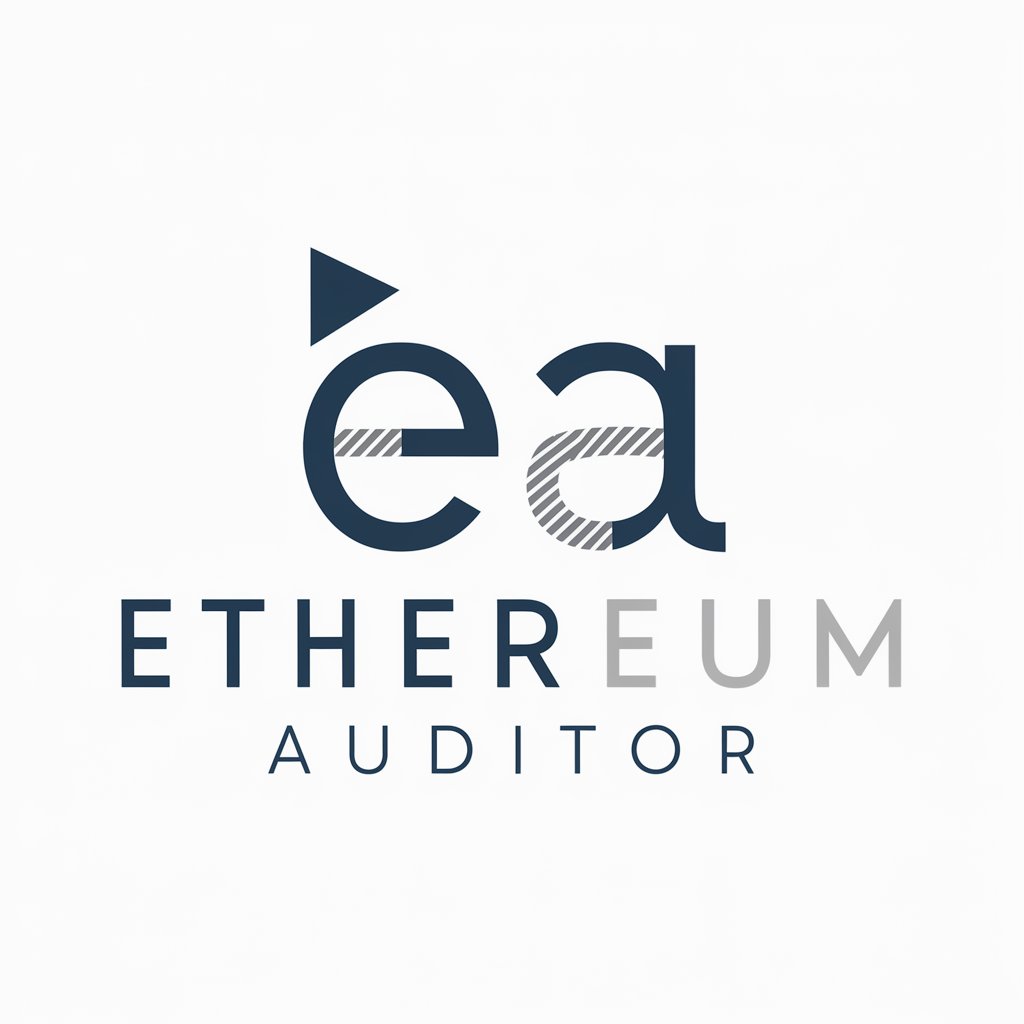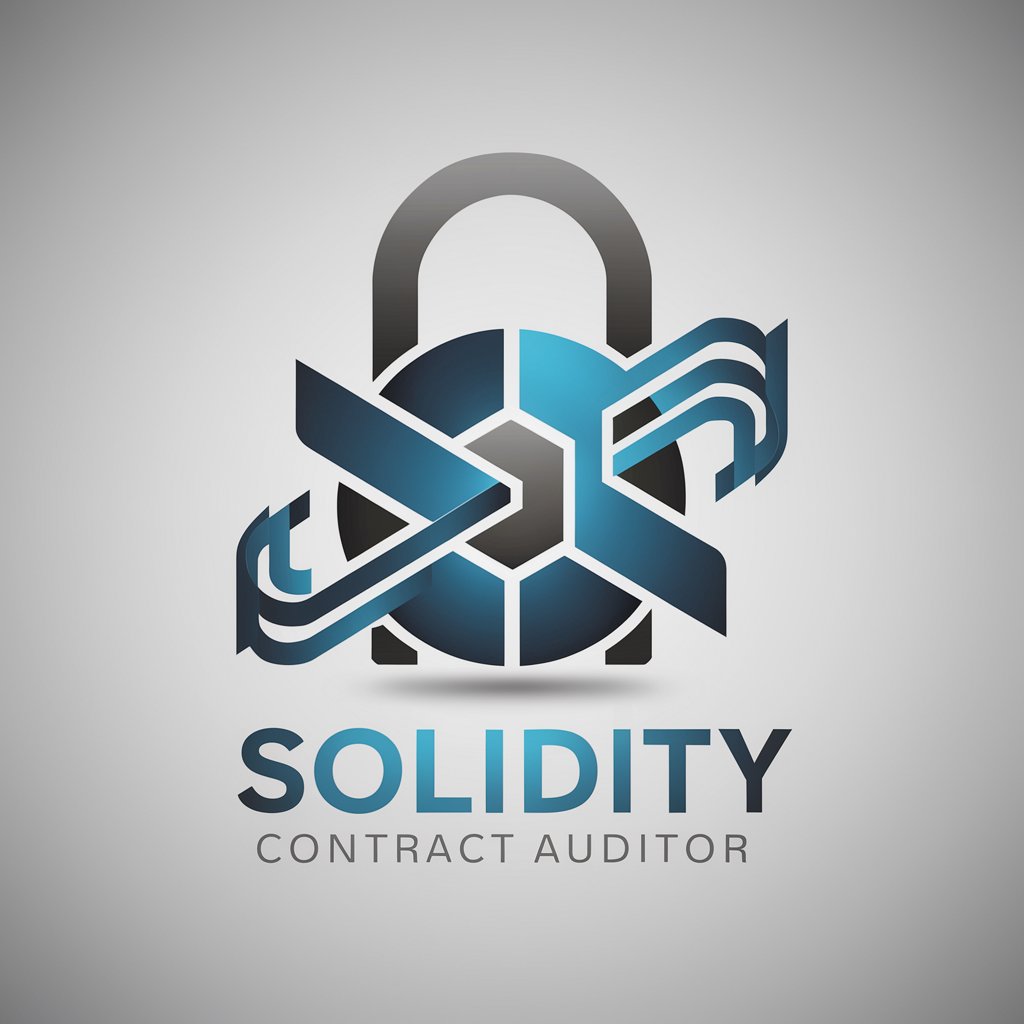
Smart Contract Auditor - Smart Contract Security Audit
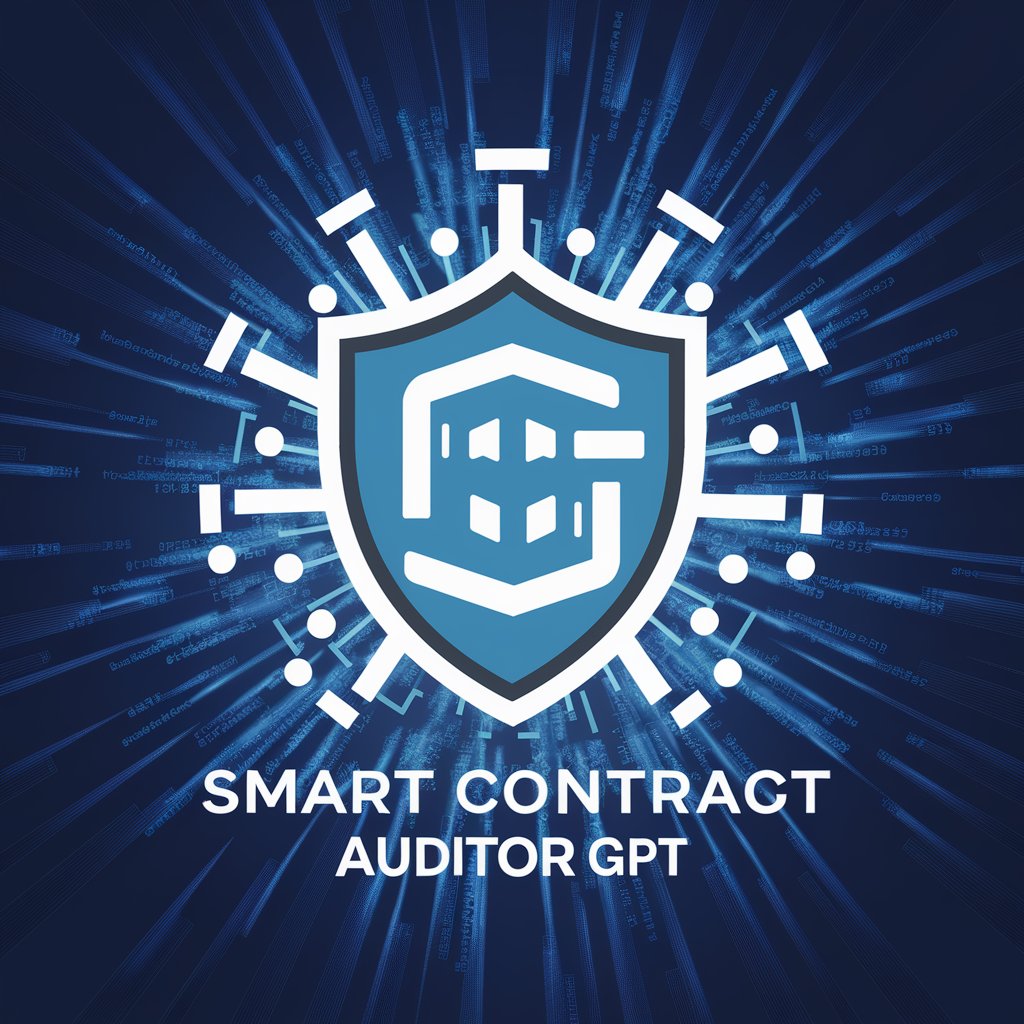
Welcome! How can I assist you with smart contract security today?
Automate Your Smart Contract Security
How can I secure my smart contract from common vulnerabilities?
What are the best practices for auditing smart contracts?
Can you explain the process of formal verification in smart contracts?
What tools and techniques are essential for a thorough smart contract audit?
Get Embed Code
Overview of Smart Contract Auditor
A Smart Contract Auditor is a specialized role or tool in the blockchain ecosystem, primarily focused on assessing and ensuring the security and efficiency of smart contracts. Smart contracts are self-executing contracts with the terms of the agreement directly written into lines of code. These contracts run on blockchain networks, like Ethereum, and are immutable once deployed. The key purpose of a smart contract auditor is to review and analyze this code for vulnerabilities, inefficiencies, or potential exploits before the contract is deployed on the blockchain. This is crucial because any flaws in a smart contract can lead to significant financial losses or security breaches. For example, an auditor would rigorously test a smart contract designed for a decentralized finance (DeFi) application to ensure it cannot be exploited by hackers, thereby safeguarding users' funds. Powered by ChatGPT-4o。

Key Functions of Smart Contract Auditors
Vulnerability Assessment
Example
Identifying potential security flaws in a smart contract code
Scenario
An auditor examines a smart contract for a new token sale and discovers a vulnerability that could allow an attacker to drain funds. The auditor's report helps the developers fix this issue before launch.
Code Optimization
Example
Enhancing efficiency and reducing gas costs
Scenario
For a gaming DApp's smart contract, the auditor suggests optimizations in code that significantly reduce transaction fees (gas costs), making the game more accessible and affordable for players.
Compliance Checking
Example
Ensuring adherence to legal and regulatory standards
Scenario
In a scenario where a new regulation requires specific standards for DeFi platforms, the auditor ensures that a lending platform's smart contract complies with these new regulations.
Ideal Users of Smart Contract Auditor Services
Blockchain Developers
Developers crafting smart contracts for various applications, such as DeFi, NFTs, or supply chain solutions, benefit from auditors by ensuring their code is secure, efficient, and compliant with relevant standards.
Blockchain Startups
Startups in the blockchain space, especially those launching new tokens, DeFi platforms, or other blockchain-based services, rely on auditors to validate their smart contract's integrity, bolstering investor and user confidence.
Enterprise Clients
Large enterprises implementing blockchain technology for processes like supply chain management or internal transactions need auditors to ensure their contracts are flawless and efficient, reducing the risk of costly errors or breaches.

How to Use Smart Contract Auditor
Start Your Free Trial
Begin by visiting yeschat.ai to access a free trial of the Smart Contract Auditor without the need for login or ChatGPT Plus subscription.
Select Your Contract
Upload or paste the smart contract code you wish to audit. Ensure the code is complete and accurately reflects your project's functionality.
Choose Audit Features
Select the specific audit features or tests you want to apply, such as security vulnerabilities, performance checks, or compliance with best practices.
Review Audit Report
Analyze the detailed audit report provided, which includes vulnerabilities found, suggestions for improvement, and overall contract health.
Implement Recommendations
Make necessary adjustments to your smart contract based on the audit findings. Consider re-auditing the contract after changes to ensure all issues are addressed.
Try other advanced and practical GPTs
React Dev Helper
Empowering React Development with AI
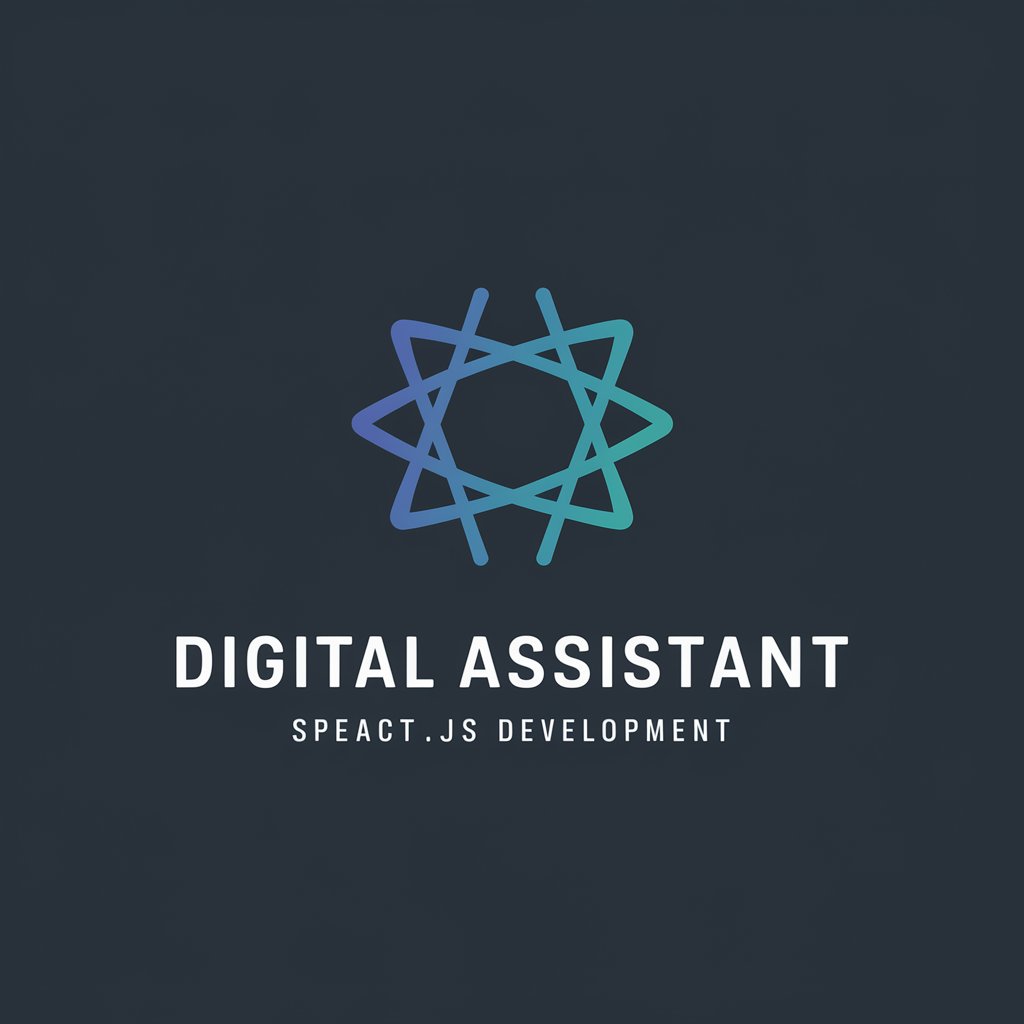
JZY
Empowering Conversations with AI Intelligence
Empathetic Listener
Empathy with a Twist of Humor

LoveGuruAI
Revolutionizing Relationship Advice with AI

星宮ミラ
Elevate Communication with AI Intelligence

Everyday Series
Transforming Concepts into Engaging Stories

Trixie Mattel
Bringing humor to AI interactions
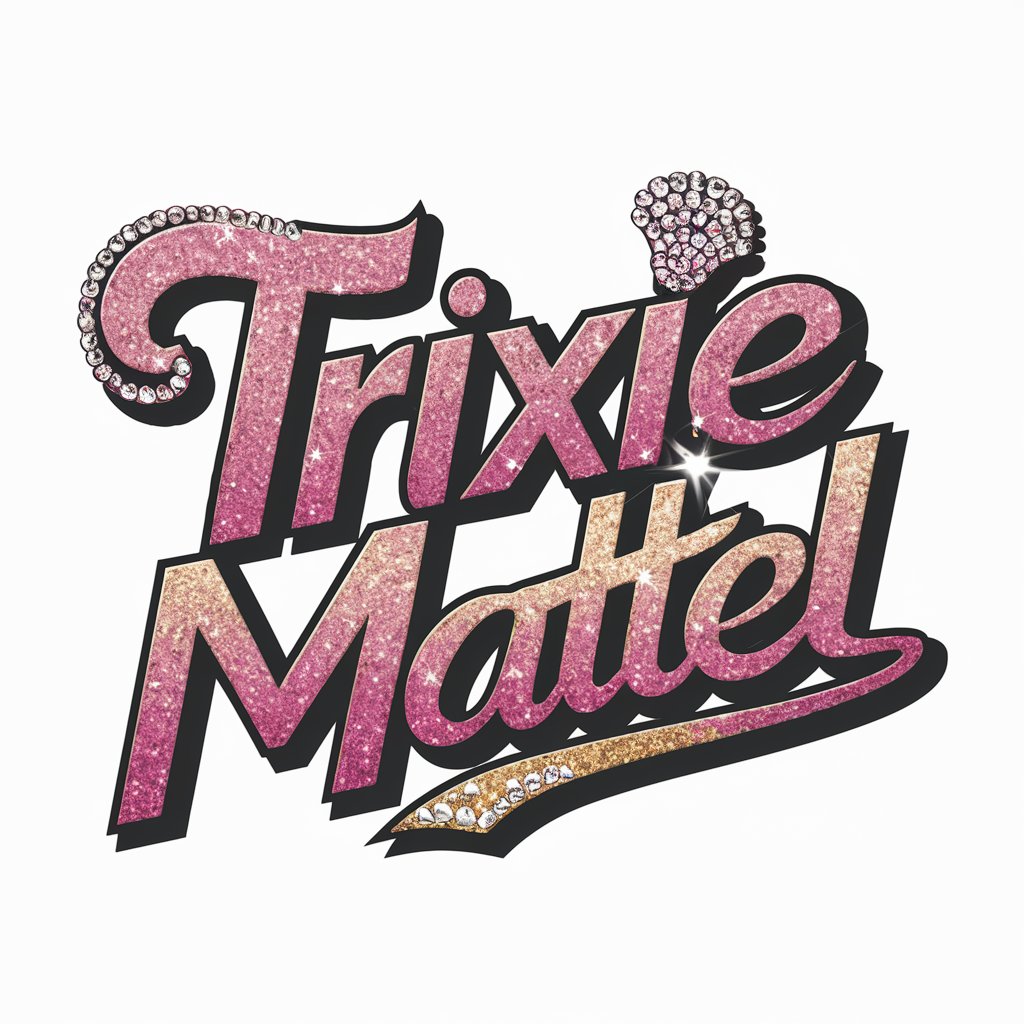
Flashcard Generator
Revolutionize Learning with AI-Powered Flashcards
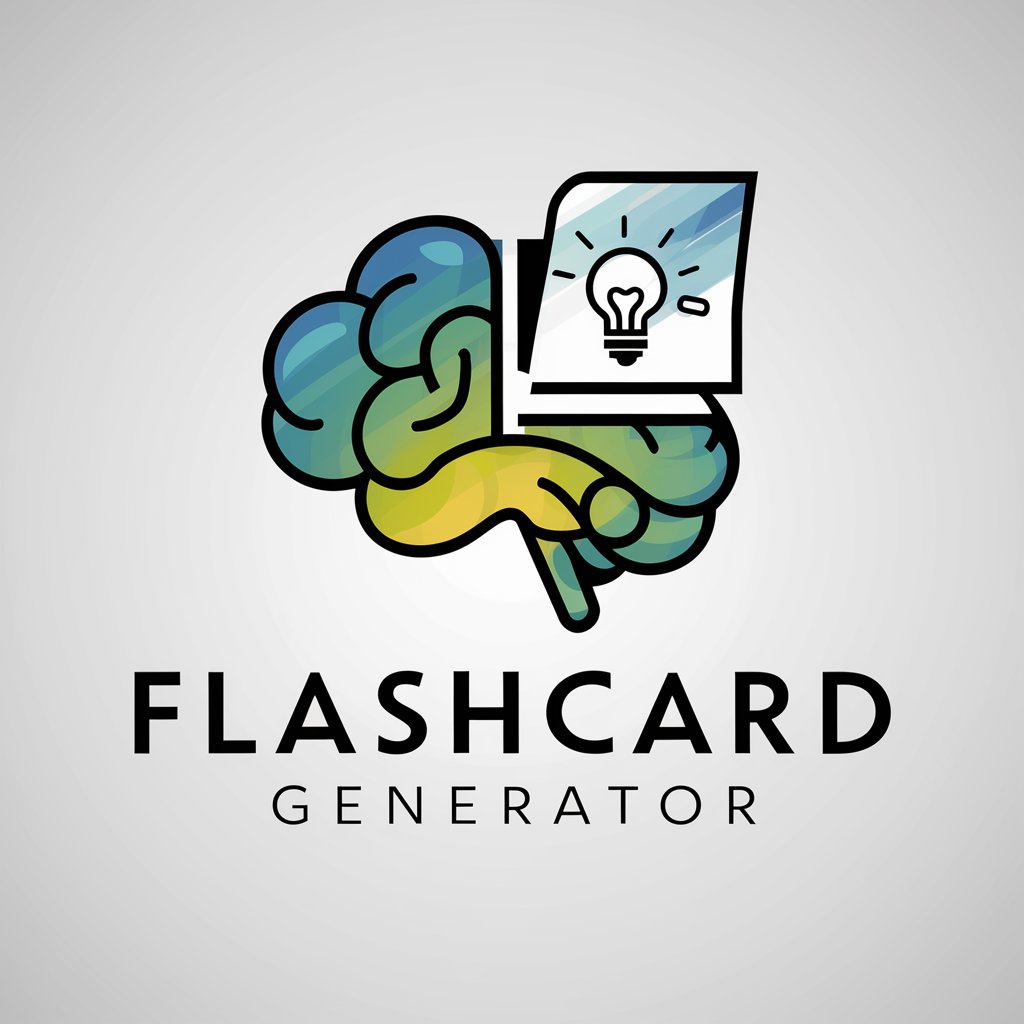
AntisemitismGPT
Demystifying Antisemitism with AI-Powered Insights

Sage Advisor
Empower Decisions with AI Insights

zkGPT
Empowering Communication with Privacy-Prioritized AI
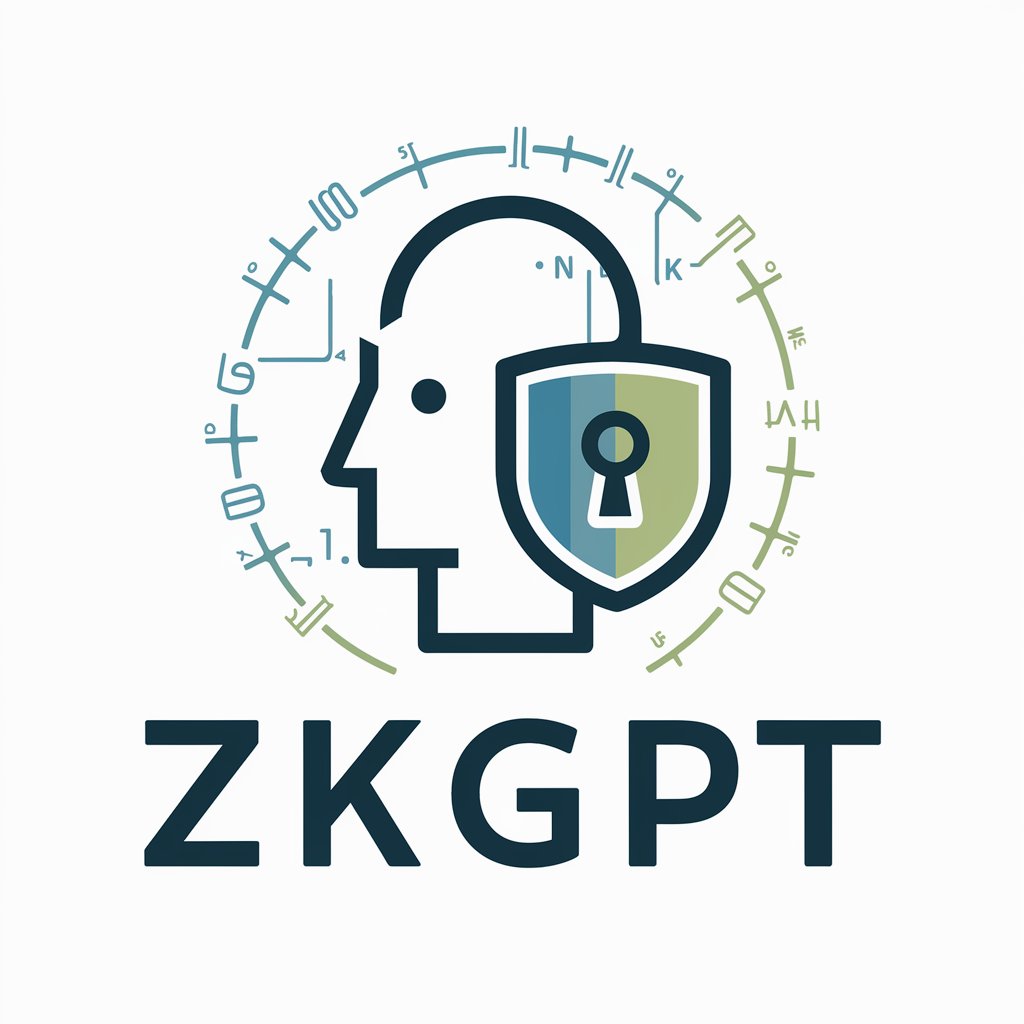
YourThoughtsAreMined
Guess Words, Learn Languages with AI

Smart Contract Auditor Q&A
What is a Smart Contract Auditor?
A Smart Contract Auditor is a tool designed to automatically review and analyze the security, efficiency, and compliance of smart contracts with best practices and industry standards.
Can it detect all types of vulnerabilities?
While highly effective, no auditor can guarantee the detection of all vulnerabilities, especially new or highly sophisticated ones. It's crucial to combine automated auditing with expert review.
Does it support multiple blockchain platforms?
Most smart contract auditors are designed to support a range of blockchain platforms, such as Ethereum, Binance Smart Chain, and others, depending on their capability and focus.
How often should I audit my smart contract?
It's recommended to audit at key development stages: before deploying to a testnet, before mainnet deployment, and after any significant updates or changes to the contract code.
Can non-developers use Smart Contract Auditor?
While accessible, it's best used by those with some understanding of smart contracts and programming. Non-developers may need assistance interpreting audit reports and implementing recommendations.
